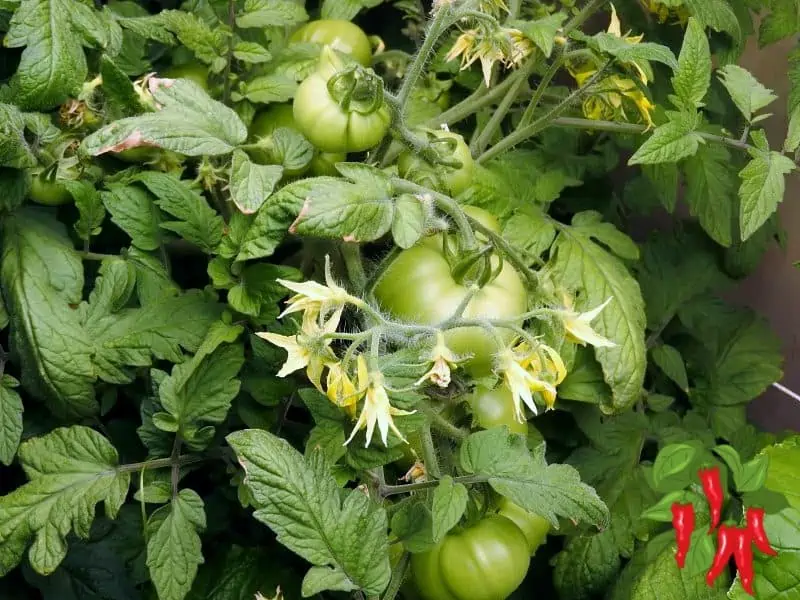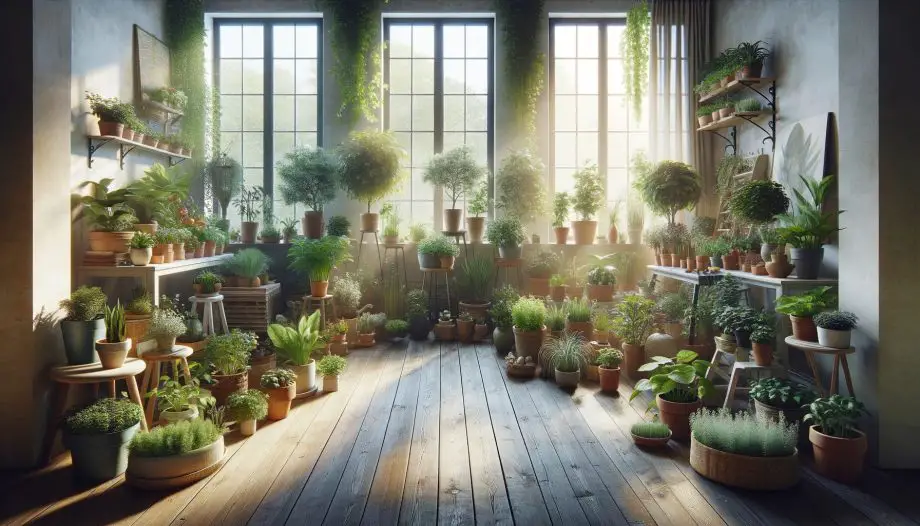This post contains affiliate links. If you buy something from one of our links we may earn a commission. Thanks
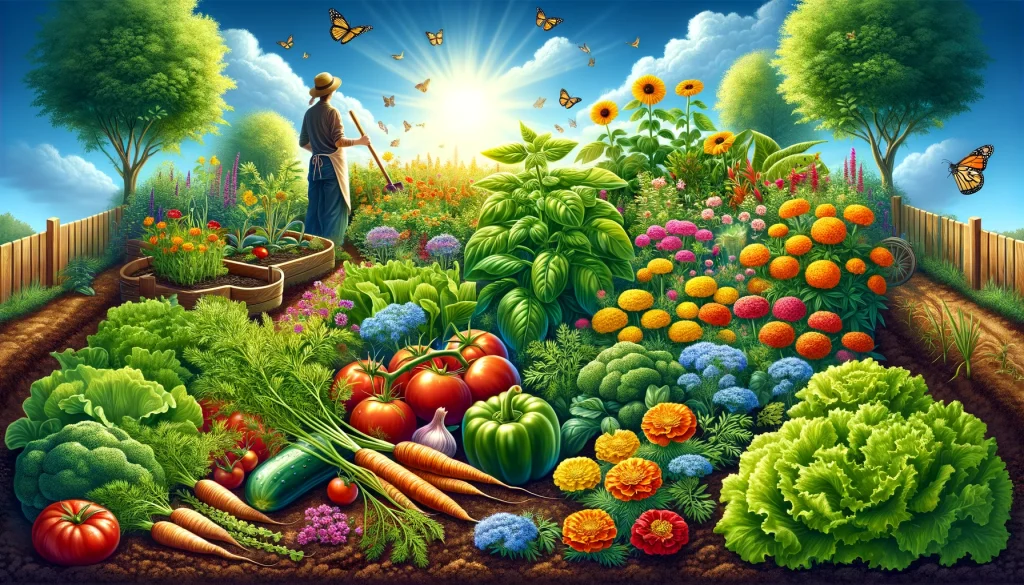
Discover the incredible benefits of organic gardening and transform your backyard, balcony or apartment garden into a sustainable paradise.
Organic Gardening Benefits Key Takeaways
-
-
- Benefits of Organic Gardening include improving soil health, supporting biodiversity, and producing nutrient-rich, chemical-free produce.
- This eco-friendly approach saves money and promotes a healthier lifestyle by reducing exposure to synthetic pesticides and fertilizers
-
1. Introduction to Benefits of Organic Gardening
Howdy everyone! Let’s chat about the amazing benefits of organic gardening. This practice isn’t just good for your backyard; it also does wonders for the environment and your health.
Whether you’re growing tomatoes on your balcony or have a full-fledged garden, going organic is a win-win.
Benefits of Organic Gardening for the Environment
Organic gardening is like a superhero for the environment. When you skip the synthetic fertilizers and pesticides, you’re not just protecting local waterways from nasty chemicals but also giving a helping hand to bees and butterflies.
Those organic methods boost soil health by nurturing beneficial bacteria and fungi, which keep the soil happy and healthy.
- Cleaner Waterways: No synthetic chemicals mean less pollution in our water.
- Bee and Butterfly Friendly: Organic gardens provide a safe haven for these crucial pollinators.
- Healthier Soil: Organic practices enhance soil structure and fertility.
The Benefits of Organic Gardening for Better Health
When you garden organically, you’re growing food without the bad stuff. That means your veggies are not only tastier but also packed with more nutrients.
And don’t forget the bonus: gardening is a great way to reduce stress and get some exercise. It’s good for the body and the soul.
- Nutrient-Dense Produce: More vitamins and minerals in your home-grown goodies.
- Stress Reduction: Gardening can be incredibly calming and meditative.
- Physical Activity: Keeps you active without feeling like a workout.
2. What is an Organic Garden – What is Organic Gardening?
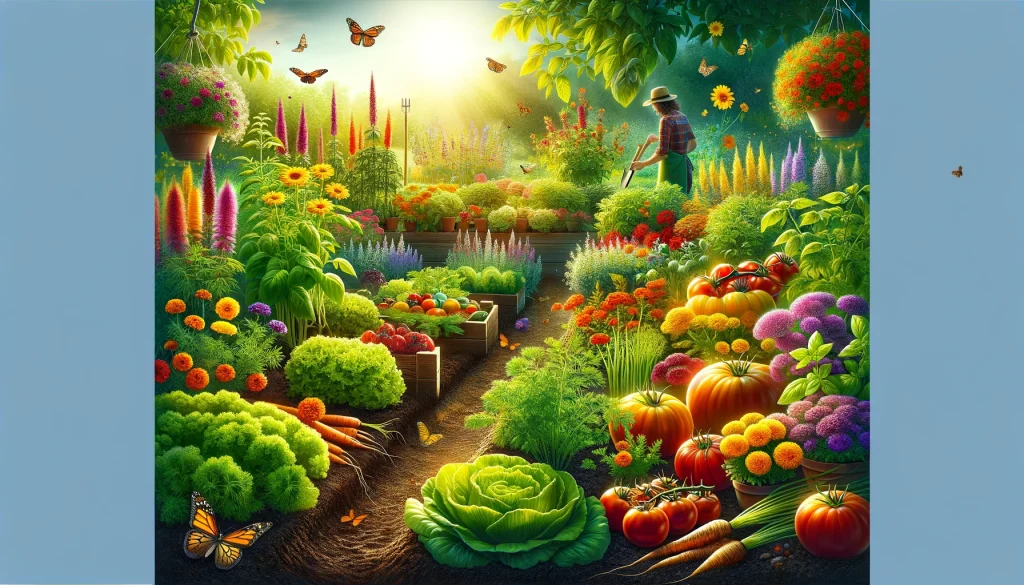
Alright, let’s get down to the basics. What exactly is an organic garden? Simply put, an organic garden is cultivated without synthetic pesticides, herbicides, or fertilizers.
Instead, it relies on natural processes and materials to promote plant health and soil fertility. This method emphasizes sustainability and biodiversity, creating a balanced ecosystem within your garden.
- No Synthetic Chemicals: Only natural fertilizers and pest control methods.
- Sustainable Practices: Focuses on long-term health of the garden and environment.
- Biodiversity: Encourages a variety of plants and wildlife to thrive together.
In an organic garden, you’re working with nature, not against it. This means using compost to enrich the soil, planting companion plants to ward off pests, and rotating crops to keep the soil fertile.
It’s all about creating a healthy, thriving garden using what nature provides.
3. Why Organic Gardening – Pros of Organic Farming
So, why should you consider organic gardening? Well, there are plenty of reasons to ditch the chemicals and embrace natural methods. Let’s dive into the pros of organic farming.
Organic Farming Advantages
Organic gardening has a ton of advantages, making it a great choice for anyone who wants to grow their own food or just enjoy a healthier, more sustainable garden.
- Environmental Benefits: Organic gardening helps protect the environment by reducing chemical runoff and promoting biodiversity. By using natural fertilizers and pest control methods, you’re keeping harmful chemicals out of our soil and water.
- Healthier Produce: Organic fruits and vegetables often contain more nutrients and fewer pesticides compared to conventionally grown produce. Plus, there’s nothing like the taste of a fresh, organic tomato right off the vine!
- Cost-Effective: While starting an organic garden might require an initial investment, it can save you money in the long run. You won’t need to buy expensive chemical fertilizers or pesticides, and you can even make your own compost from kitchen scraps.
- Supports Wildlife: Organic gardens provide a habitat for beneficial insects, birds, and other wildlife. This can help create a balanced ecosystem right in your backyard.
Disadvantages of Organic Farming
While there are many benefits, it’s also important to consider some of the challenges that come with organic gardening.
- Labor-Intensive: Organic gardening can be more labor-intensive than conventional methods. It often requires more time and effort to manage pests and maintain soil health naturally.
- Initial Costs: Starting an organic garden can sometimes be more expensive upfront, especially if you’re buying organic seeds, compost, or other supplies. However, these costs can be offset over time as you save money on chemicals and enjoy healthier produce.
4. Organic Gardening Methods
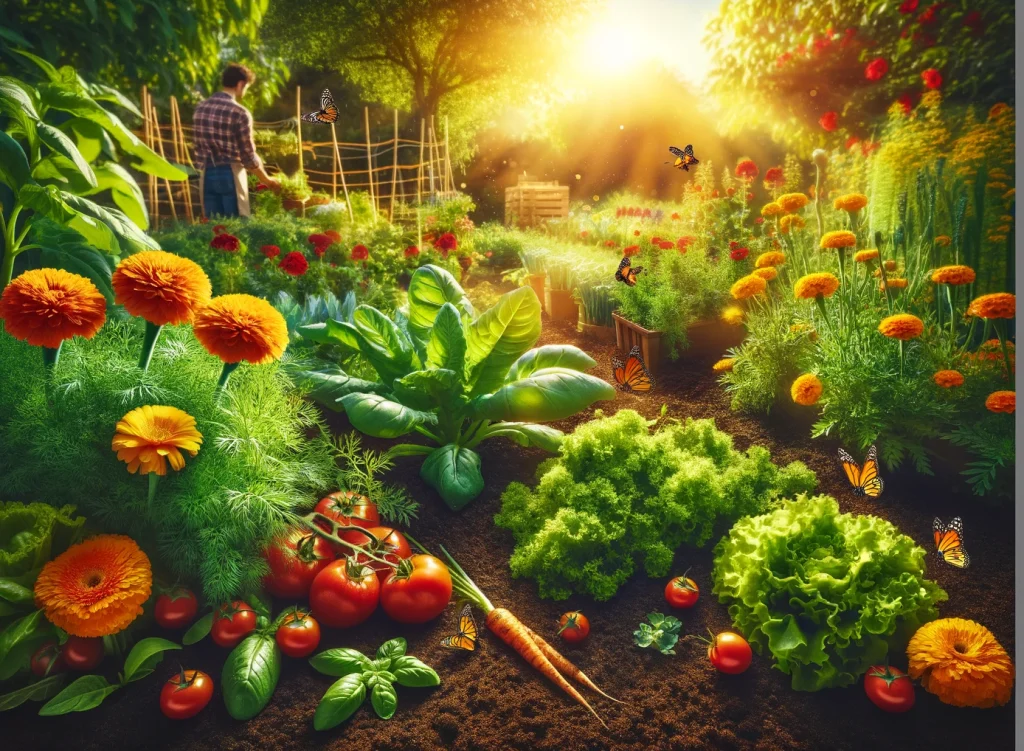
Now that we’ve covered the pros and cons, let’s talk about some of the methods you can use to create your own organic garden.
Organic gardening is all about working with nature to create a thriving, sustainable garden.
There are various methods you can use to ensure your garden stays healthy and productive without relying on synthetic chemicals. Here are some of the most effective techniques.
Natural Methods of Pest Control
One of the biggest challenges in any garden is dealing with pests. In an organic garden, you’ll use natural methods to keep pests at bay.
These techniques are safe for your plants, your family, and the environment.
- Companion Planting: This involves growing certain plants together to help each other out. For instance, marigolds can repel nematodes and other pests from your vegetable garden. Basil planted near tomatoes can improve their growth and flavor while keeping mosquitoes and flies away.
- Beneficial Insects: Attract insects that prey on garden pests. Ladybugs, for example, love to munch on aphids, while bees are fantastic for pollination. You can encourage these helpful critters by planting flowers like daisies and sunflowers.
- Homemade Remedies: Simple solutions like a mix of soap and water can help control pests without harmful chemicals. Just be sure to research and use these remedies correctly to avoid damaging your plants.
By incorporating these natural methods, you can manage pests effectively without resorting to synthetic chemicals.
Your garden will thrive, and so will the environment around it.
5. Organic Gardening Advantages
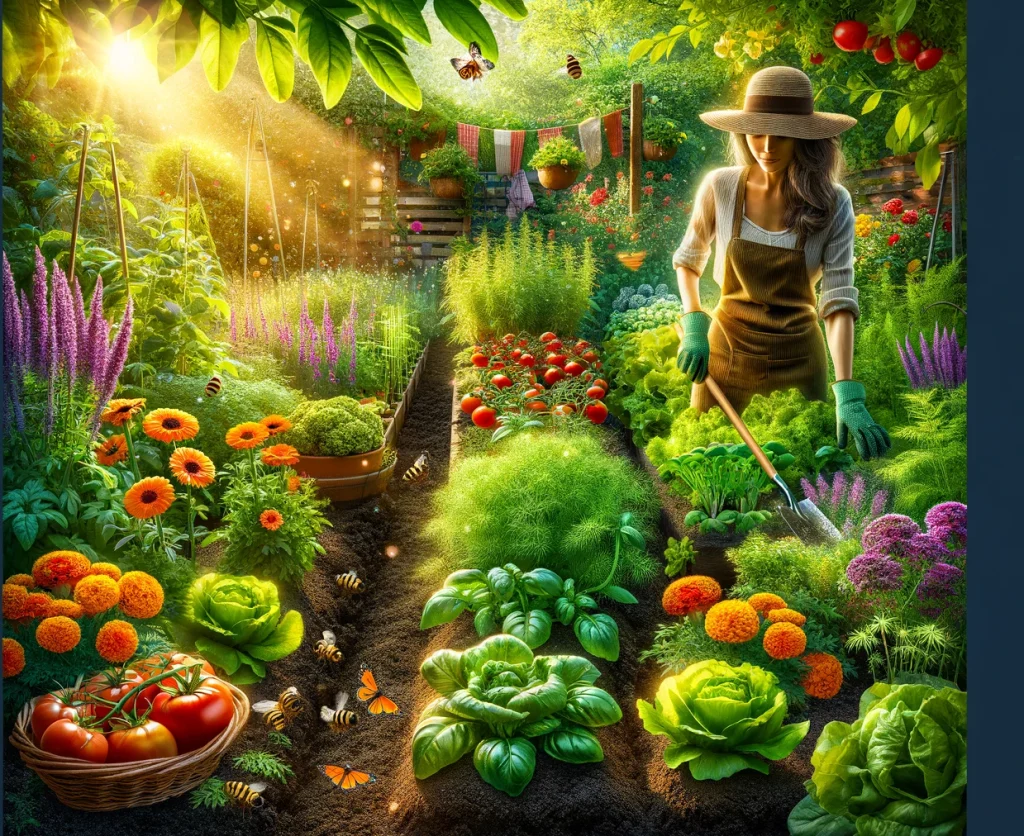
Organic gardening comes with a heap of benefits that make it a fantastic choice for both novice and seasoned gardeners.
From healthier soil to tastier produce, these advantages can transform your gardening experience. Let’s break down some key perks of going organic.
Healthier Soil – Organic Soil Benefits
Organic gardening practices, like composting and using organic fertilizers, do wonders for soil health.
These methods increase the soil’s organic matter, boost its nutrient content, and help beneficial microorganisms thrive.
Healthier soil means your plants will be more resilient and productive.
- Composting: Add essential nutrients back into the soil.
- Organic Fertilizers: Improve soil structure and fertility.
- Beneficial Microorganisms: Help plants absorb nutrients more efficiently.
Biodiversity – Organic Gardening and Biodiversity
Organic gardens are a haven for biodiversity. They create habitats for various plants, insects, and other wildlife, helping to create a balanced ecosystem.
This natural diversity helps manage pests and diseases without the need for synthetic chemicals.
- Wildlife Habitats: Attract beneficial insects and birds.
- Natural Pest Control: Predators keep pests in check.
- Plant Variety: Supports a healthier garden environment.
Soil – Organic Soil Benefits
Healthy, organic soil is key to a thriving garden. It retains moisture better, reduces erosion, and provides a stable foundation for plant growth.
By maintaining soil health with organic methods, you ensure your garden stays productive for years.
- Moisture Retention: Organic soil holds water longer.
- Erosion Control: Stronger soil structure prevents erosion.
- Stable Base: Ensures plants have a solid foundation to grow.
Money – Gardening to Save Money
Going organic can save you a bunch of money in the long run. Making your own compost and using locally sourced materials cuts down on the need for expensive fertilizers and pesticides.
Growing your own veggies means fewer trips to the grocery store too.
- DIY Composting: Cuts down on fertilizer costs.
- Local Materials: Save money by using what’s around you.
- Homegrown Produce: Reduce your grocery bills.
Taste – It Tastes Better
There’s no beating the taste of homegrown organic produce. Plants grown in nutrient-rich soil often have a superior flavor compared to store-bought varieties.
Many gardeners find that their fruits and vegetables are fresher and more delicious right off the vine.
- Nutrient-Rich Soil: Enhances the flavor of your produce.
- Fresh Harvest: Enjoy veggies at their peak freshness.
- Superior Taste: Often better than store-bought.
Health – Nutrient Content – Benefits of Organic Food
Organic foods generally have higher nutrient content compared to conventionally grown produce.
Thanks to healthier soil and the absence of synthetic chemicals, your homegrown veggies can pack more vitamins and minerals, making them better for you.
- Higher Nutrient Levels: More vitamins and minerals.
- Chemical-Free: No harmful residues on your food.
- Healthier Eating: Better nutrition from better-grown food.
Incorporating these organic gardening practices can lead to a healthier, more sustainable garden.
Also you get to enjoy delicious, nutritious food straight from your own backyard.
6. Tips for Watering Plants
Watering your plants might seem straightforward, but doing it right can make a big difference in your garden’s success.
Here are some handy tips to ensure your plants get just the right amount of water they need to thrive.
Watering Basics
- Consistent Schedule: Water your plants regularly. A consistent schedule helps plants develop strong roots.
- Morning Watering: Watering in the morning allows plants to absorb moisture before the heat of the day.
- Deep Watering: Make sure the water reaches deep into the soil. Shallow watering can lead to weak roots.
Checking Soil Moisture
- Finger Test: Stick your finger about an inch into the soil. If it feels dry, it’s time to water.
- Moisture Meters: These tools can give you a more precise reading of soil moisture levels.
Proper Watering Techniques
- Water at the Base: Focus on watering at the base of the plant to keep leaves dry and prevent fungal diseases.
- Slow and Steady: Water slowly to allow the soil to absorb the water properly. A drip irrigation system can be a great investment.
Tips for Different Plants
- Succulents: These plants need less water. Let the soil dry out completely between watering.
- Vegetables: Most veggies need a lot of water, especially during hot weather. Keep an eye on their soil moisture.
- Flowers: Flowering plants may need more frequent watering when they are in bloom.
Water Conservation Tips
- Mulching: Mulch helps retain soil moisture and reduce the need for frequent watering.
- Rain Barrels: Collect rainwater to use in your garden. It’s eco-friendly and can save you money.
Watering your garden the right way can make a huge difference in plant health and productivity.
With these tips, you’ll be well on your way to a lush, thriving garden.
7. Social Benefits of Gardening
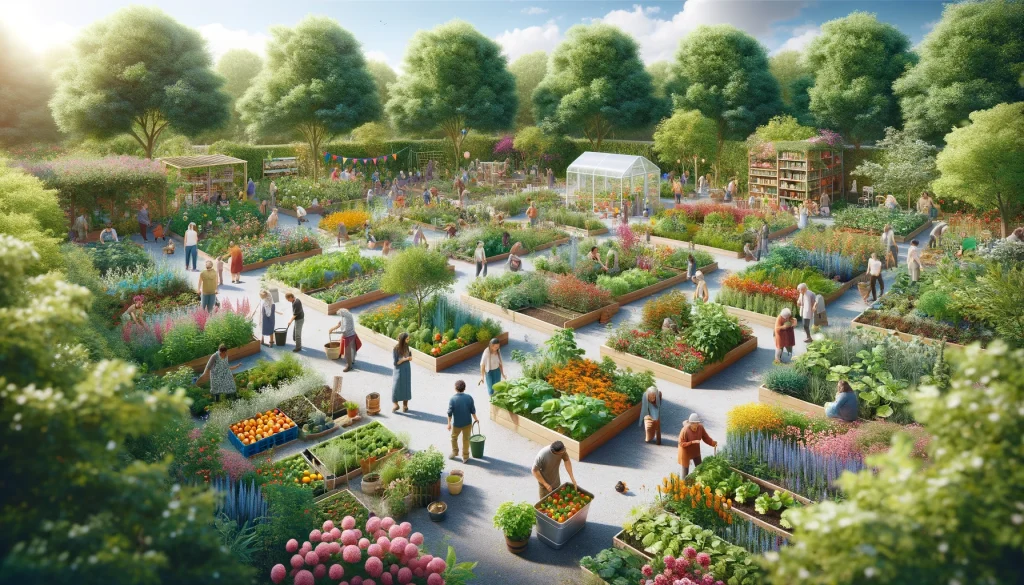
Gardening isn’t just about plants; it’s about people too. Organic gardening can bring folks together, foster community, and offer great educational opportunities. It’s a fantastic way to connect with nature and each other.
Community Building
Organic gardening can turn neighbors into friends. Starting a community garden or sharing your gardening experiences with others can help build strong, supportive communities.
- Community Gardens: These are great places to meet people, share tips, and work together to grow fresh, organic produce.
- Sharing the Bounty: Got too many tomatoes? Share them with your neighbors. It’s a great way to start a conversation and build relationships.
Educational Opportunities
Gardening is a great way to teach kids (and adults) about nature, sustainability, and healthy eating. It’s hands-on learning at its best.
- Teaching Kids: Show the little ones how plants grow. It’s a fun way to teach them about the environment and healthy eating.
- Workshops and Classes: Many community gardens and local organizations offer gardening workshops. It’s a great way to learn and share knowledge.
8. Role of Gardening in Environmental Protection
Gardening is more than just a hobby; it’s a way to protect our planet. Organic gardening, in particular, plays a big role in environmental conservation.
Reducing Carbon Footprint
Gardening helps reduce your carbon footprint in several ways. For one, growing your own food means fewer trips to the grocery store and less reliance on industrial agriculture.
- Less Transportation: Homegrown produce doesn’t need to be shipped across the country, reducing greenhouse gas emissions.
- Carbon Sequestration: Plants absorb CO2, helping to reduce the amount of carbon in the atmosphere.
Creating Wildlife-Friendly Habitats
Your garden can be a sanctuary for wildlife. By planting native species and avoiding chemicals, you create a safe haven for birds, insects, and other critters.
- Birds and Bees: Provide food and shelter for these important creatures.
- Native Plants: These are best suited to your local environment and support local wildlife.
9. The Importance of Organic Seeds
Using organic seeds is a key part of organic gardening. They’re not just better for your garden; they’re better for the planet too.
Benefits of Organic Seeds
Organic seeds are produced without synthetic chemicals, which makes them a healthier choice for your garden and the environment.
- Healthier Plants: Organic seeds are often more resilient and better adapted to organic growing conditions.
- Environmental Impact: Growing plants from organic seeds reduces your garden’s chemical footprint.
Finding and Choosing Organic Seeds
It’s important to choose high-quality organic seeds. Look for reputable suppliers and consider heirloom varieties for added diversity.
- Reputable Suppliers: Companies like Seed Savers Exchange and Johnny’s Selected Seeds are great places to start.
- Heirloom Varieties: These seeds are passed down through generations and often have unique flavors and characteristics.
10. Water Conservation Techniques in Organic Gardening
Water is a precious resource, and conserving it is a crucial part of sustainable gardening. Here are some tips to make the most of every drop.
Drip Irrigation Systems
Drip irrigation is a highly efficient way to water your garden. It delivers water directly to the plant roots, minimizing waste.
- Efficient Water Use: Drip systems use less water than traditional sprinklers.
- Healthier Plants: Reduces the risk of disease by keeping foliage dry.
Rain Barrels
Collecting rainwater is an easy way to save water and reduce your utility bills.
- Rainwater Collection: Use rain barrels to collect and store water from your roof.
- Eco-Friendly: Reduces runoff and conserves municipal water supplies.
Mulching
Mulching helps retain soil moisture and reduces the need for frequent watering.
- Retains Moisture: Keeps the soil cool and moist.
- Weed Control: Helps suppress weeds, reducing competition for water.
11. Companion Planting in Detail
Companion planting is a smart way to enhance your garden’s health and productivity. Certain plants work well together, providing mutual benefits.
Plant Partnerships
Some plants naturally repel pests, while others can improve growth and flavor.
- Tomatoes and Basil: Basil improves the flavor of tomatoes and repels insects.
- Carrots and Onions: Onions repel carrot flies, and carrots help aerate the soil for onions.
Enhancing Garden Health
By choosing the right plant combinations, you can create a more balanced and productive garden.
- Pest Control: Reduce the need for chemical pesticides.
- Improved Growth: Some plants help each other grow better by providing nutrients or shade.
12. Indoor Organic Gardening Tips
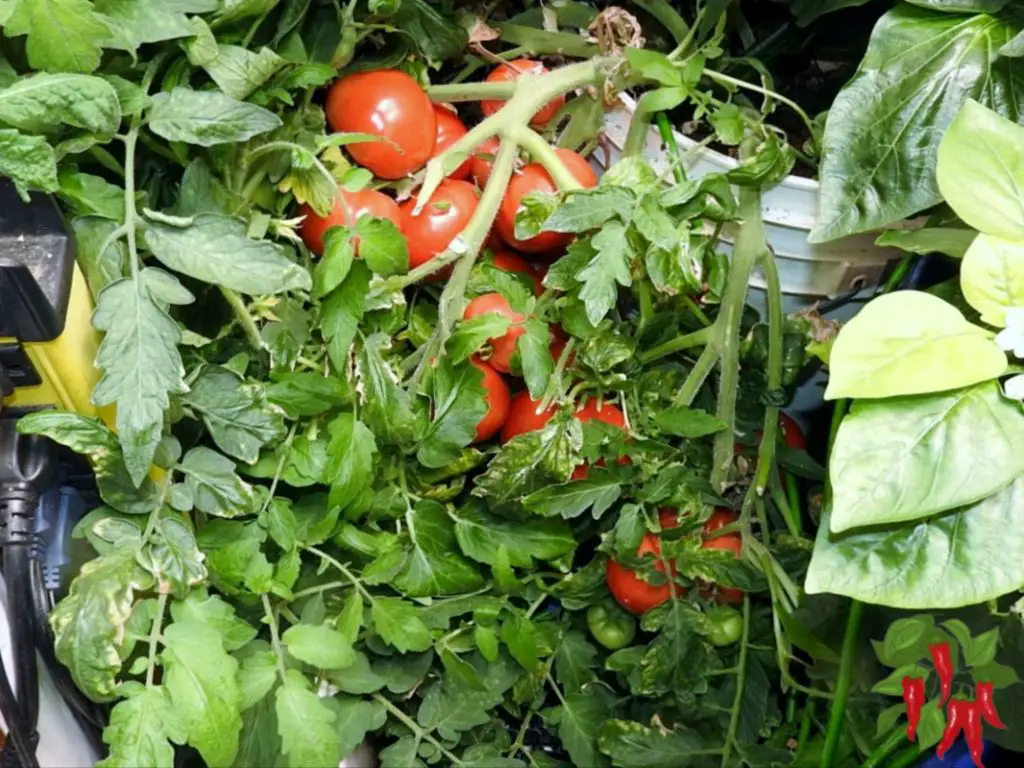
You don’t need a big yard to enjoy organic gardening. With a few tips, you can grow a thriving garden right inside your home.
Best Practices
Growing plants indoors comes with its own set of challenges, but with the right approach, you can create a lush indoor garden.
- Light Management: Ensure your plants get enough light. Use grow lights if natural light is insufficient.
- Soil and Fertilizers: Use high-quality organic potting soil and fertilizers.
Managing Light, Soil, and Pests
Indoor gardening requires careful management of light, soil, and pests to keep your plants healthy.
- Grow Lights: These can mimic natural sunlight and help your plants thrive.
- Pest Control: Keep an eye out for pests and use natural remedies like neem oil if needed.
13. Seasonal Organic Gardening Tips
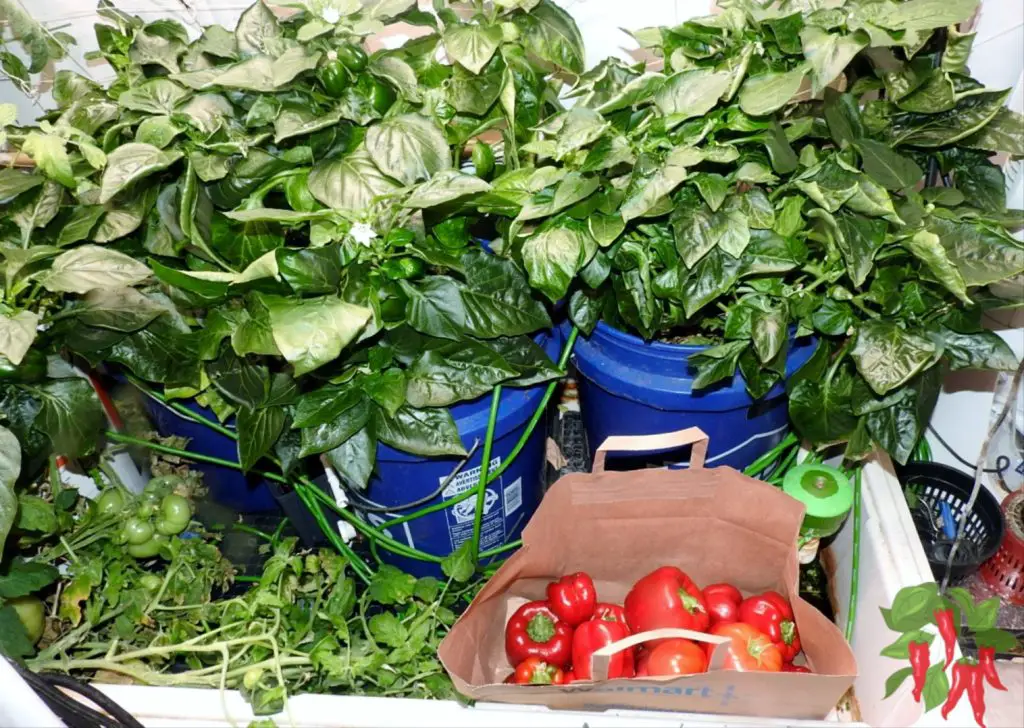
Gardening isn’t just a summer activity. With the right approach, you can enjoy fresh produce year-round.
Planning for Each Season
Knowing what to plant and when is key to successful seasonal gardening.
- Spring: Start seeds indoors for early crops like lettuce and peas.
- Summer: Plant heat-loving veggies like tomatoes and peppers.
- Fall: Grow cool-weather crops like broccoli and kale.
- Winter: Use cold frames or indoor setups to keep growing through the winter.
Crop Rotation
Rotating crops helps maintain soil health and prevent pest and disease buildup.
- Soil Health: Different crops use different nutrients, so rotating them helps keep the soil balanced.
- Pest Control: Rotating crops can break the life cycles of pests and diseases.
By following these tips and exploring these additional topics, you can create a thriving, sustainable organic garden that benefits you, your community, and the environment. Happy gardening, and don’t forget to stay green!
FAQs about the Benefits of Organic Gardening
Howdy everyone! Organic gardening is a fantastic way to grow healthy food and protect the environment.
I get a lot of questions about this topic, so I’ve put together some FAQs to help you out. Let’s dig into the details and clear up some common queries.
Q: What are the main benefits of organic gardening?
A: Organic gardening offers several benefits including healthier soil, better tasting produce, and environmental protection. It helps reduce the use of synthetic chemicals, supports biodiversity, and can even save you money over time. Plus, it’s great for your physical and mental well-being.
Q: How does organic gardening help the environment?
A: Organic gardening helps the environment by reducing chemical runoff and pollution. It supports healthy soil, conserves water, and creates habitats for beneficial insects and wildlife. By avoiding synthetic pesticides and fertilizers, you’re also protecting local waterways and the broader ecosystem.
Q: Is organic gardening more expensive than conventional gardening?
A: While the initial costs of organic gardening might be higher due to organic seeds and materials, it can save you money in the long run. Making your own compost, using local resources, and growing your own produce reduce the need for expensive fertilizers and pesticides. Over time, the savings on grocery bills and health benefits can outweigh the initial investment.
Q: What are some common organic gardening methods?
A: Organic gardening involves several key methods including composting, crop rotation, and companion planting. Composting enriches the soil with nutrients, while crop rotation helps prevent pest buildup and soil depletion. Companion planting uses certain plants to naturally repel pests and improve growth. These methods work together to create a healthy, sustainable garden.
Q: How does organic gardening benefit human health?
A: Organic gardening benefits human health by reducing exposure to harmful chemicals found in synthetic pesticides and fertilizers. It also promotes physical activity, which is great for overall health.
Additionally, consuming organic produce can provide more nutrients compared to conventionally grown produce. This means you’re getting more vitamins and minerals in every bite. Plus, the physical activity involved in gardening can help reduce stress, improve mood, and provide a good workout.
Q: How can I start an organic garden?
A: Starting an organic garden involves choosing the right location with good sunlight and drainage, preparing the soil with compost and organic matter, and selecting organic seeds or plants.
It’s also important to plan for natural pest control and regular maintenance to keep your garden healthy. Begin small, and expand as you gain experience.
Q: What are some tips for maintaining an organic garden?
A: Maintaining an organic garden involves regular watering, weeding, and monitoring for pests.
Use mulch to retain soil moisture and suppress weeds. Employ natural pest control methods like introducing beneficial insects or using neem oil. Regularly add compost to keep the soil fertile and healthy.
Q: Can organic gardening help with climate change?
A: Yes, organic gardening can help mitigate climate change by reducing greenhouse gas emissions associated with synthetic fertilizers and pesticides.
Organic practices such as composting and using cover crops enhance soil health and increase its ability to sequester carbon. Additionally, growing your own food reduces the carbon footprint associated with transporting produce.
Q: Are there specific plants that are better suited for organic gardening?
A: Some plants are particularly well-suited for organic gardening due to their hardiness and resistance to pests.
Examples include tomatoes, lettuce, beans, and herbs like basil and oregano. Choosing disease-resistant varieties and practicing companion planting can also help ensure a successful organic garden.
I hope these FAQs help answer some of your questions about the benefits of organic gardening. If you have more queries or need further details, feel free to ask. Happy gardening, and don’t forget to stay green!
Benefits of Organic Gardening Conclusion
As we’ve explored, the benefits of organic gardening are plentiful and impactful. Whether you’re a seasoned gardener or just starting out, embracing organic methods can lead to healthier plants, better produce, and a more sustainable environment. Let’s recap some of the key points we’ve covered.
Key Takeaways
- Healthier Soil: Organic gardening practices like composting and using natural fertilizers significantly improve soil health, making it more fertile and resilient.
- Biodiversity: Organic gardens support a wide range of plants, insects, and other wildlife, helping to create a balanced ecosystem.
- Environmental Protection: By reducing chemical use, organic gardening helps protect local waterways and reduces pollution.
- Cost Savings: Although the initial setup may be higher, organic gardening can save you money in the long run through composting, using local resources, and reducing grocery bills.
- Better Taste and Nutrition: Organic produce often tastes better and is more nutrient-dense compared to conventionally grown produce.
- Physical and Mental Health: Gardening is a great way to stay active, reduce stress, and enjoy the outdoors.
- Climate Change Mitigation: Organic gardening practices help sequester carbon and reduce greenhouse gas emissions.
Why You Should Start Enjoying The Benefits of Organic Gardening
- Personal Health Benefits: Reducing exposure to synthetic chemicals means healthier produce for you and your family.
- Environmental Impact: Organic gardening supports sustainable practices that are better for the planet.
- Community and Social Benefits: Gardening can bring communities together and provide educational opportunities for all ages.
- Long-Term Rewards: Over time, the benefits of healthier soil, cost savings, and improved produce quality can significantly enhance your gardening experience.
How to Begin Your Organic Gardening Journey
- Start Small: Begin with a few plants and gradually expand as you gain experience.
- Choose the Right Location: Ensure your garden spot has good sunlight and drainage.
- Use Quality Organic Seeds: Select seeds from reputable suppliers to ensure the best start for your plants.
- Implement Water Conservation Techniques: Use drip irrigation and rain barrels to conserve water.
- Employ Natural Pest Control: Use companion planting and beneficial insects to keep pests at bay.
By embracing organic gardening, you’re not just growing plants; you’re contributing to a healthier, more sustainable world. So, grab your gardening tools, get your hands dirty, and start enjoying the many benefits of organic gardening today. Happy gardening, and don’t forget to stay green!
6 Benefits of Gardening: Gardening’s Big Payoffs
Benefits of Organic Gardening Resources
Whether you’re just starting out or looking to expand your knowledge, having the right resources can make a huge difference in your organic gardening journey.
Here are some top-notch articles that will help you get the most out of your garden.
Useful Articles and Guides
- Growing an Organic Garden – The Fundamentals
Penn State Extension offers a comprehensive guide on the basics of organic gardening, covering everything from soil management to pest control. This is a great starting point for anyone new to organic gardening. Read the article - What is Organic Gardening?
N.C. Cooperative Extension explains the philosophy and practices of organic gardening, emphasizing the importance of creating a sustainable ecosystem in your garden. Read the article - What is Organic or Sustainable Vegetable Gardening?
University of Maryland Extension discusses best practices for sustainable and organic vegetable gardening, including soil health, biodiversity, and integrated pest management. Read the article - What is Organic Gardening?
UMass Amherst’s Center for Agriculture, Food, and the Environment provides insights into the principles of organic gardening, focusing on soil health and pest management. Read the article - Organic Gardening: Soil Management
South Dakota State University Extension covers the importance of composting and managing soil health in organic gardening. Read the article - Living Soil, Healthy Garden
University of Minnesota Extension explores how to maintain healthy soil through organic matter, proper aeration, and minimizing chemical use. Read the article - Earth-Kind® Landscaping
Texas A&M University provides practical tips on combining organic and traditional gardening practices to create a sustainable and environmentally friendly garden. Read the article - Organic Gardening
Nebraska Extension in Lancaster County offers a detailed guide on organic gardening techniques, including crop rotation, composting, and natural pest control. Read the article
By exploring these resources and incorporating their insights into your gardening practices, you’ll be well on your way to creating a thriving, sustainable organic garden. Happy gardening, and don’t forget to stay green!


